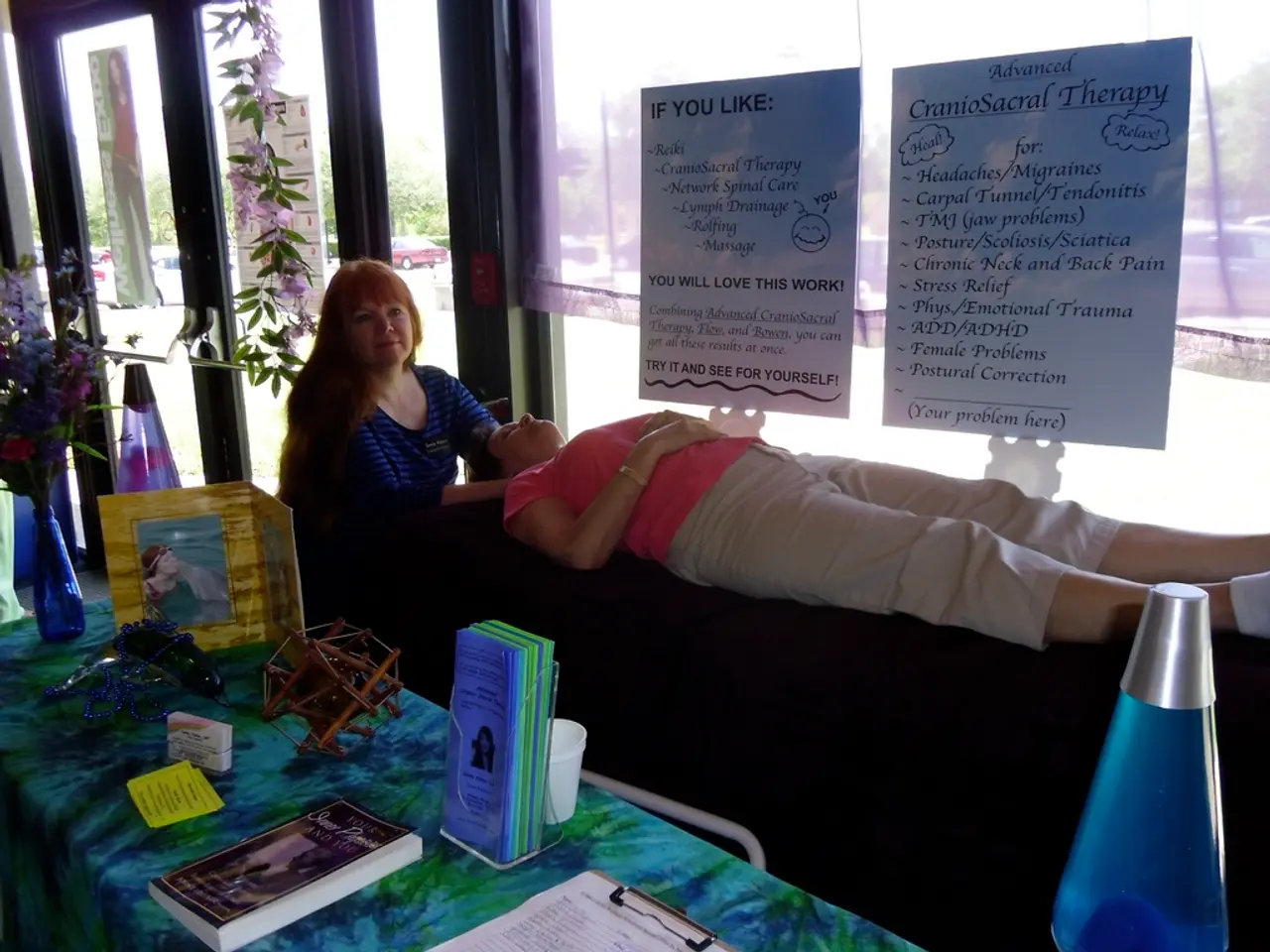Mental Health: Exploring Schizophrenia and its associated hallucinations
Schizophrenia, a complex mental health disorder, is characterised by hallucinations and delusions. These sensory experiences, often perceived as real, are a hallmark of the condition. It's essential to understand that hallucinations in schizophrenia do not have to be debilitating. With appropriate treatment and support, their impact on a person's life can be minimised.
Common Types of Schizophrenic Hallucinations
The most frequent type of hallucination in schizophrenia is auditory, where patients may hear voices that others do not. These voices often comment on the patient's behaviour, engage in conversation, or make critical or abusive remarks. Other types of hallucinations can be visual, olfactory (smell), gustatory (taste), or tactile (touch), but they are less common.
Causes of Schizophrenia and Hallucinations
The causes of schizophrenia and its associated hallucinations are multifaceted, involving a complex interplay of biological, genetic, and environmental factors.
Biological Factors
- Dopamine Dysregulation: Overactivity in dopamine pathways is strongly linked to hallucinations and delusions in schizophrenia.
- Neurochemical Imbalances: Glutamate abnormalities also affect cognitive processing related to the disorder.
- Brain Structural Differences: Enlarged brain ventricles, reduced gray matter, and less frontal lobe activity have been observed in people with schizophrenia.
Genetic Predisposition
Having a close relative with schizophrenia significantly increases the risk of developing the condition. Identical twins show a 40–80% concordance rate, and first-degree relatives have a much higher risk than the general population.
Perinatal and Developmental Factors
Maternal stress, viral infections, hypoxia during birth, low birth weight, and nutritional deficiencies during prenatal development increase vulnerability to schizophrenia.
Environmental Triggers
Childhood trauma and neglect, urban living, social isolation, substance use (especially cannabis, LSD, cocaine), major life stresses, and crises may precipitate psychosis in genetically predisposed individuals.
Management and Support
Antipsychotic medications can help relieve the symptoms of psychosis in schizophrenia, by blocking dopamine receptors in the brain. Psychotherapy, including CBT, behavioural skills training, and cognitive remediation interventions, can also help manage symptoms.
It's crucial to encourage a person to seek treatment, be respectful and supportive, and not dissuade or discourage hallucinations or delusions. Involving a mental health professional is recommended for offering help and support.
Resources for Support
The National Alliance on Mental Illness (NAMI) offers support groups for those facing challenges with mental health. The 988 Suicide and Crisis Lifeline is available 24 hours a day for those having thoughts of suicide.
For immediate risks of self-harm, suicide, or harm to others, emergency services should be called.
Self-Care
Self-care for those with schizophrenia includes caring for mental and physical health, being attentive to one's needs, maintaining a relationship with a community mental health team, avoiding alcohol, illegal drugs, and smoking, if applicable.
Delusions, strong beliefs usually not held by others, can go hand in hand with hallucinations. Delusions involve thoughts, while hallucinations are sensory experiences.
Environmental factors and lifestyle experiences may contribute to developing schizophrenia, including experiencing stressful situations such as poverty, danger, or issues at birth.
[1] American Psychiatric Association. (2013). Diagnostic and Statistical Manual of Mental Disorders, 5th edition, text revision (DSM-5-TR). Arlington, VA: American Psychiatric Publishing.
[4] Murray, R. M., & Lewis, D. A. (2005). Schizophrenia: A very short introduction. Oxford University Press.
[5] Torrey, E. F. (2001). Surviving schizophrenia: A manual on its diagnosis, treatment, and recovery. HarperCollins Publishers.
The management and support for individuals living with schizophrenia often involve antipsychotic medications to relieve symptoms of psychosis by blocking dopamine receptors in the brain, as well as psychotherapy such as CBT, behavioral skills training, and cognitive remedial interventions. The National Alliance on Mental Illness (NAMI) offers support groups for those facing mental health challenges, while the 988 Suicide and Crisis Lifeline is available round the clock for those encountering thoughts of suicide.
It's essential to recognize delusions, strong beliefs usually not shared by others, as distinct from hallucinations, which are sensory experiences. Environmental factors and life experiences, such as exposure to stress, may play a role in the development of schizophrenia, making it crucial for mental health resources and self-care to be accessible.




